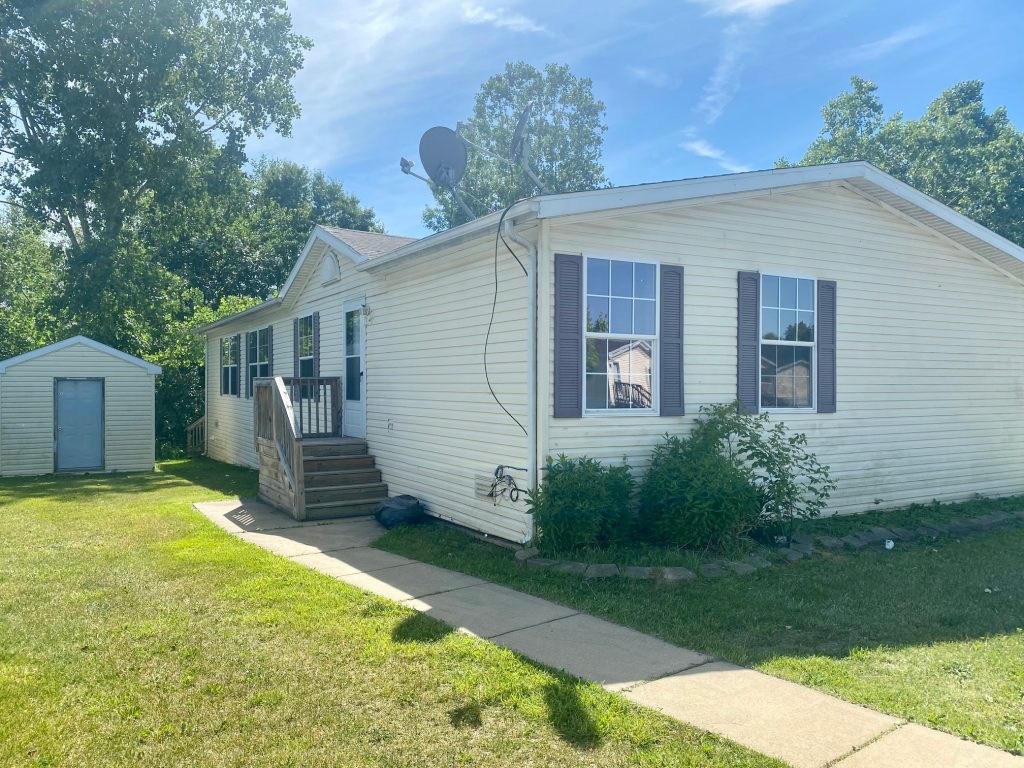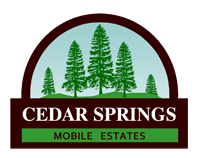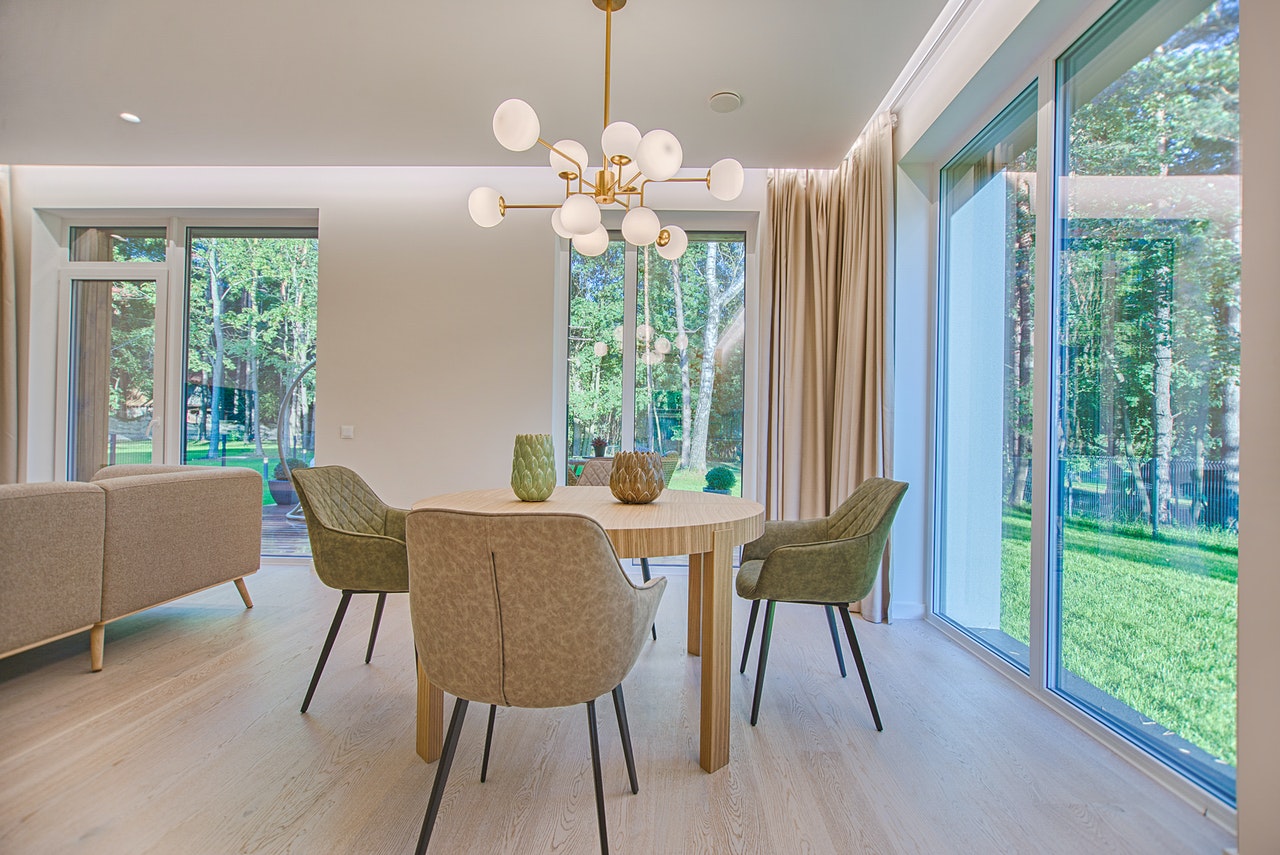Are you debating whether or not to buy a mobile home? It can be intimidating to invest in something you have no experience with, but it does not have to be.
Understanding the ins and outs of the manufactured housing industry will help you avoid being swayed by negative stereotypes that you may have heard about in the mainstream media or on social media.
Mobile homes are home to more than 17 million people in the United States, making them a popular housing option for many individuals. The manufactured homes’ affordability has sparked a surge in demand, which is expected to continue for many years to come.
Pros and Cons of Manufactured Homes

If you are debating whether to buy a mobile home or a stick-built home, the best approach in deciding is to analyze the advantages and disadvantages of each.
That said, this article will break down all the pros and cons of mobile homes and help you make a better judgment about housing.
What is a Manufactured Home?
A manufactured home refers to housing that is constructed in a factory and then transported to the desired location for installation. Unlike site-built homes, manufactured homes take less time to construct and are delivered to the desired location.
Types of Manufactured Homes
Before thinking of buying a mobile or manufactured home, here are the types of housing you need to know:
Single-Wide Mobile Home
Single-wide mobile homes are the smallest of all manufactured housing options. They range in size from 600 to 1,330 square feet. Single-wides are 18 feet wide or smaller and should not exceed 80 feet in length.
Single-wides are quite inexpensive and could be an excellent choice for secondary or vacation homes. A used single-wide mobile home would typically cost you between $10,000 and $25,000.
Double-Wide Mobile Home
A double-wide home is basically two single sections joined together, offering a bigger living space than a single-wide home. A double-wide often consists of a minimum of three bedrooms and two bathrooms.
Double-wides can be an ideal choice if you have a bigger family because of its larger living space compared to single-wides. Generally, a double-wide has been built to resemble the modern trends in housing style.
Buying a double-wide mobile home means you have more freedom regarding customization. On average, a used double-wide mobile home will cost you between $50,000-$60,000.
Triple-Wide Mobile Home
Triple-wide homes consist of three sections joined together. This is why it is often referred to as a multi-section home. They are similar to a standard stick-built home, with numerous bedrooms and amenities. Due to their higher cost, triple-wides are not as popular as single and double-wides.
Pros of Manufactured Homes
Mobile homes have a number of benefits that set them apart from other types of dwellings. Here are several advantages to mobile houses that you should be aware of:
Affordability
Mobile homes are generally less expensive than real estate homes (real property). In fact, they are up to 30% cheaper. For example, a stick-built home could cost $300,000 while a triple-wide home costs upwards of $150,000 and the average price of a new double-wide is $90,000.
In addition, according to the Manufactured Housing Institute, the cost of building mobile homes is $55 per square foot versus $114 per square foot for a stick-built home.
Flexibility
If you decide to relocate your mobile home after it has been installed, you can load it onto the back of a truck and transport it to your new site. For stick-built homes, the same cannot be said; you will need to sell the house first before relocating because it is built on a permanent foundation.
It takes time to sell a real estate property, so you might need to look for real estate agents to help you find a buyer quickly.
Furthermore, the majority of mobile home parks in Michigan are conveniently located near key amenities, like schools, retail malls, and downtown areas, to name a few. As a result, it will be easier to obtain anything in a short period of time.
If you move around a lot, buying or renting a manufactured home is always a better choice than buying a real estate/traditional home or renting an apartment. Why is that so? For one thing, a mobile home allows you to relocate with ease; and for another, it allows you to live a stick-built house lifestyle while paying less.
Less Maintenance
For many prospective homeowners, repairs and maintenance are a huge issue. It entails a significant monthly expenditure to maintain the residence in the desired condition. When plumbing fails, it is usually the homeowner’s responsibility to contact a plumber. Mobile home owners, on the other hand, do not have as much of a repair and maintenance load.
If the manufactured home is in a community, the park manager is usually in charge of a large portion of the maintenance. When it comes to maintenance responsibilities, it is crucial to refer to your lease agreement constantly.
Customizable
The best thing about the manufactured housing industry is that you can customize your home to your desired style. In comparison to homes constructed before 1976, modern manufactured homes are built with modern materials and techniques that allow for more interior and exterior customization.
Speed
On average, traditional home construction/site-built construction takes about 7.5 months to complete. Why wait longer for a home to be built and spend more money in the process when you can spend less and have your home built in a factory (building process) in a matter of days to a few months?
A manufactured home has an advantage over other types of housing because of the speed with which it is built. All you have to do is provide a recommendation for how you want the house to look and then wait for the construction to be completed.
Manufactured Home Community Living
Mobile home parks provide an ideal living environment for families. Most parks offer a variety of attractions, such as a playground for children, and are conveniently positioned near schools and other necessities. Often, the park managers organize events that bring residents together in order to increase social interaction.
Access to Amenities
Manufactured home communities provide a wide range of amenities that are not available in private residences. Typically, you will have access to a swimming pool, a fitness center, a playground, and/or a clubhouse, among other amenities at the park.
To have the same benefit as a site-built homeowner, you may need to build a swimming pool or belong to a country club, which will cost you extra money.
Cons of Mobile Homes
Although manufactured housing provides numerous advantages, there are certain drawbacks to be aware of:
Financing
Since mobile homes are considered personal property (not real property or a real asset), they are not eligible for conventional financing. This is usually one of the major drawbacks if you need to finance your home with a mortgage loan.
Although mobile homes are not eligible for conventional loans, you may still get your home financed through personal property loans, such as FHA loans, VA loans, and chattel mobile home financing, among others.
Rules and Regulations
The rules and regulations governing mobile homes are a major stumbling hurdle. Each state has its own set of rules or due processes for mobile homes. This could include, for example, wind zone regulations that all homeowners must follow.
Value
Generally, since mobile homes do not appreciate in value, future returns are unlikely. However, this is not to say that your house will not appreciate in value. The value of your property will grow if you build it on private land, and repair and maintain it according to industry standards.
Things to Know Before Buying a Manufactured Home
Before you go out and buy a manufactured home, here are some things to consider:
The Year of Construction
The age of your manufactured home will affect your chances of securing a loan from a mobile home lender. So, before you go out and buy a manufactured home, find out what year it was built. Most lenders tend to turn down loan applications from mobile homes manufactured before 1976.
According to the U.S. Department of Housing and Urban Development (HUD Code), mobile homes have a life expectancy of between 30 to 55 years. With that said, most manufactured homes outlast these numbers. It is essential to examine that your home is installed correctly and typically follows the best practices for repairs and maintenance.
Code Compliance
Does the mobile home adhere to the HUD Code? When considering purchasing a mobile home, this should be among your top concerns. When the HUD Code was enacted in 1976, the purpose was to improve the quality standards of manufactured homes.
The HUD Code brought about a number of significant changes, including making mobile homes energy-efficient and providing high-quality amenities (today’s manufactured homes).
The best thing to do before buying a manufactured home is to locate a mobile home inspector to determine the state of the home. Following the inspection, you will receive a detailed report about the house that will indicate whether or not it is fit for occupancy.
Mobile Home Park vs. Private Land
Where are you going to put the manufactured home if you decide to get one? If you intend to move into a manufactured home park, be aware that you will be paying a lot rent each month, just like you would with a typical apartment. On the other hand, be aware of the advantages and disadvantages of private land if you decide to go that path.
For instance, most mobile homes for sale in a park offer access to amenities that you might not get if you place your home on private land. So, if you choose to put it on private property, you choose to forgo these advantages. With that said, choosing suitable land may provide you with a lot more privacy than manufactured home communities.
Plan Your Manufactured Home Financing
Do you require loans for mobile homes to purchase your future home? Do you have the minimum credit score needed to qualify for a loan for a manufactured home? Most manufactured home mortgage lenders require a minimum credit score of 580 to 620.
If your score is lower than this, don’t worry; financing may still be available at a higher rate. For example, to reduce the risk of default, the lender would charge you a higher interest rate and demand a greater down payment.
Make sure your income stream is stable to avoid missing payments in the future which could harm your credit history.
Generally, as personal property, manufactured homes are not qualified for standard loans, meaning you need to plan for financing in advance.
Final Thought
Mobile homes are an excellent choice for housing. Whether you rent mobile homes in Cedar Springs, MI or buy one, you will be able to benefit from a variety of advantages, including affordability compared to stick-built homes, flexibility, and customization potential.









